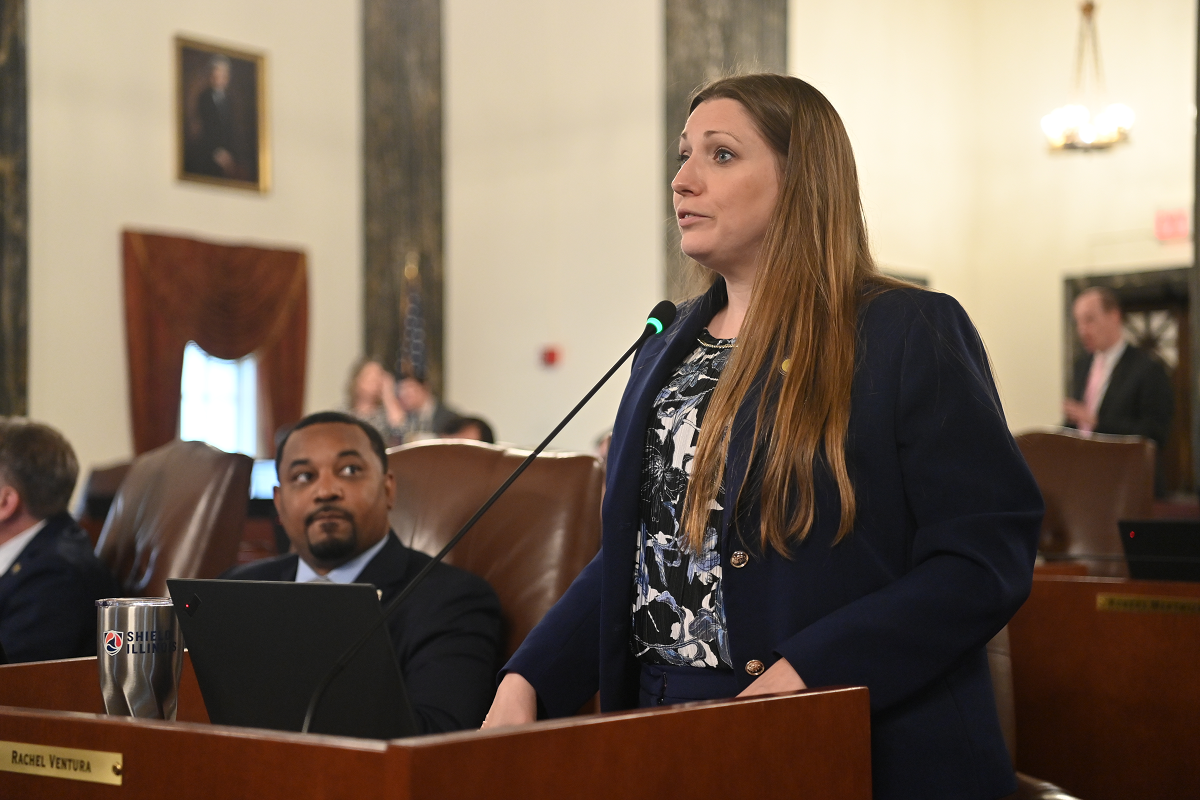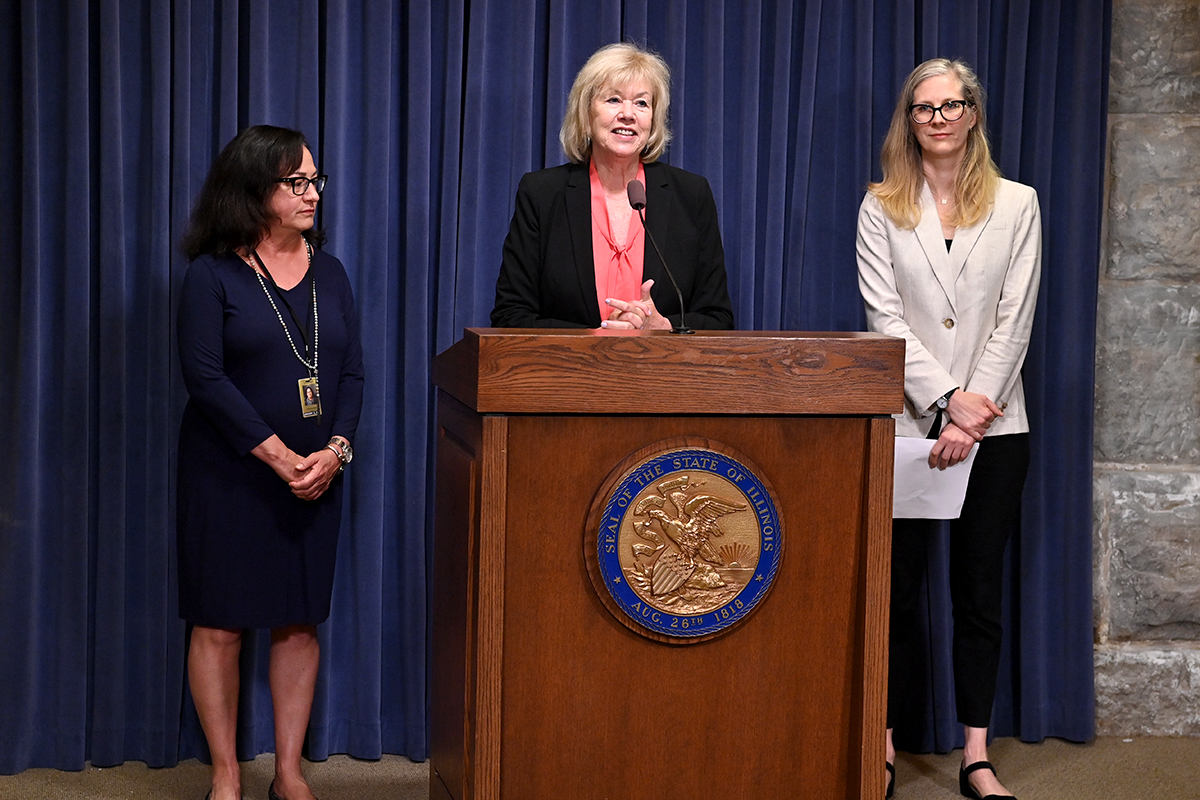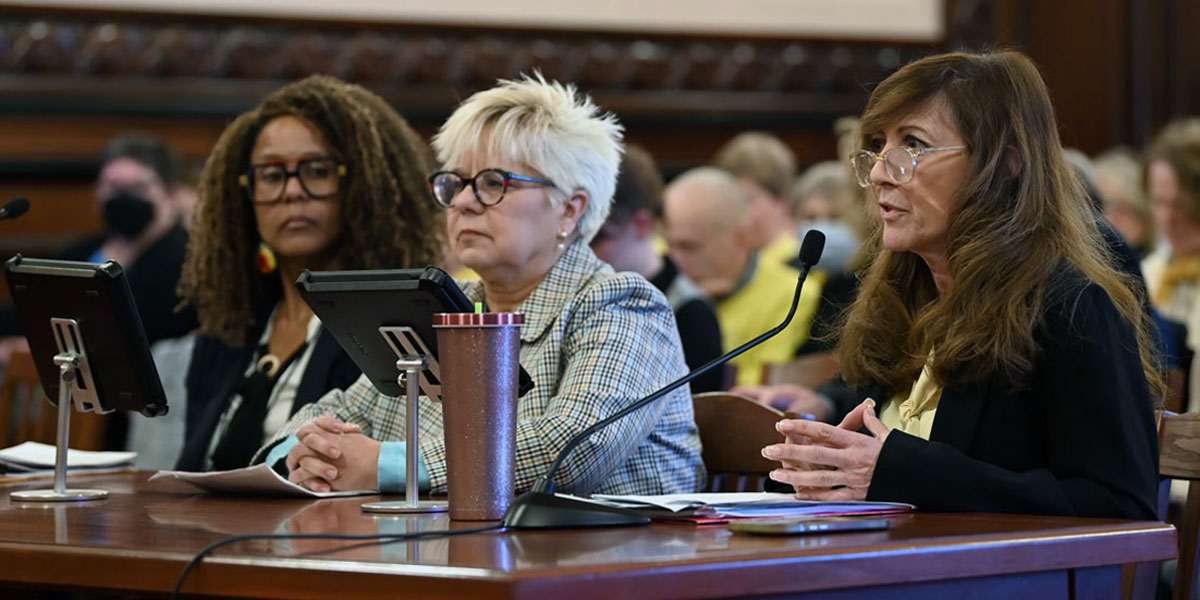Ventura declares Child Care Provider Appreciation Day in Illinois
- Details
 SPRINGFIELD – State Senator Rachel Ventura led a resolution through the Senate to declare a day in Illinois to recognize child care providers.
SPRINGFIELD – State Senator Rachel Ventura led a resolution through the Senate to declare a day in Illinois to recognize child care providers.
“As a mother, I see the selfless dedication of child care providers and all they do to keep our children safe,” said Ventura (D-Joliet). “It truly does take a village to help raise children, and for single parents, they can be a much needed lifeline.”
Senate Resolution 896 recognizes May 10, 2024 as Child Care Provider Appreciation Day.
Read more: Ventura declares Child Care Provider Appreciation Day in Illinois
Morrison initiative to expand insurance coverage for diabetes supplies
- Details

SPRINGFIELD – Standing alongside advocates from various health care organizations, State Senator Julie Morrison outlined her plan to expand private insurance coverage for medically necessary glucose monitors and related supplies.
“Increasing coverage of medically necessary services can greatly improve an individual’s quality of life,” said Morrison (D-Lake Forest). “As chair of the Senate Health and Human Services Committee, I am devoted to protecting people’s health and livelihood.”
Senate Bill 3414 would require insurance companies to cover glucose monitors, related supplies, and training in the use of glucose monitors for individuals diagnosed with any form of diabetes. The measure includes that an individual won’t need to have prior authorization for coverage for a glucose monitor and prohibits insurance from imposing cost-sharing requirements.
Read more: Morrison initiative to expand insurance coverage for diabetes supplies
Fine establishes Tardive Dyskinesia Awareness Week
- Details

SPRINGFIELD – To increase awareness, sensitivity and compassion for those affected by tardive dyskinesia, State Senator Laura Fine led a resolution to designate May 5-11, 2024 as Tardive Dyskinesia Awareness Week in Illinois.
“People seeking treatment for a mental health condition are already experiencing personal hardships and may not realize their potential for developing tardive dyskinesia, which could further impact their emotional well-being,” said Fine (D-Glenview). “It is critical we understand what this condition means for an individual in order to best help them live with dignity and to give them necessary resources.”
Tardive dyskinesia is a condition characterized by uncontrollable movements affecting the face, torso and other body parts. This condition may develop after several months of taking certain medications to treat mental health conditions such as bipolar disorder, depression and schizophrenia. Approximately 600,000 people in the U.S. experience symptoms of tardive dyskinesia.
Read more: Fine establishes Tardive Dyskinesia Awareness Week
Faraci extends utility assistance program for low-income households
- Details
 SPRINGFIELD – State Senator Paul Faraci advanced legislation to extend the Energy Assistance Act, which provides low-income households with financial assistance on utility bills.
SPRINGFIELD – State Senator Paul Faraci advanced legislation to extend the Energy Assistance Act, which provides low-income households with financial assistance on utility bills.
“Every resident in our state should have access to essential services,” said Faraci (D-Champaign). “The ability to heat or cool your home should be a fundamental right, not a privilege.”
Faraci’s measure would eliminate the scheduled sunset date on a state fund that finances two needs-based assistance programs – the Low-Income Home Energy Assistance Program (LIHEAP) and the Percentage of Income Payment Plan (PIPP). The fund was set to shut down Jan. 1, 2025.
Read more: Faraci extends utility assistance program for low-income households
More Articles …
Page 181 of 735
























 © 2026 Illinois Senate Democratic Caucus
© 2026 Illinois Senate Democratic Caucus